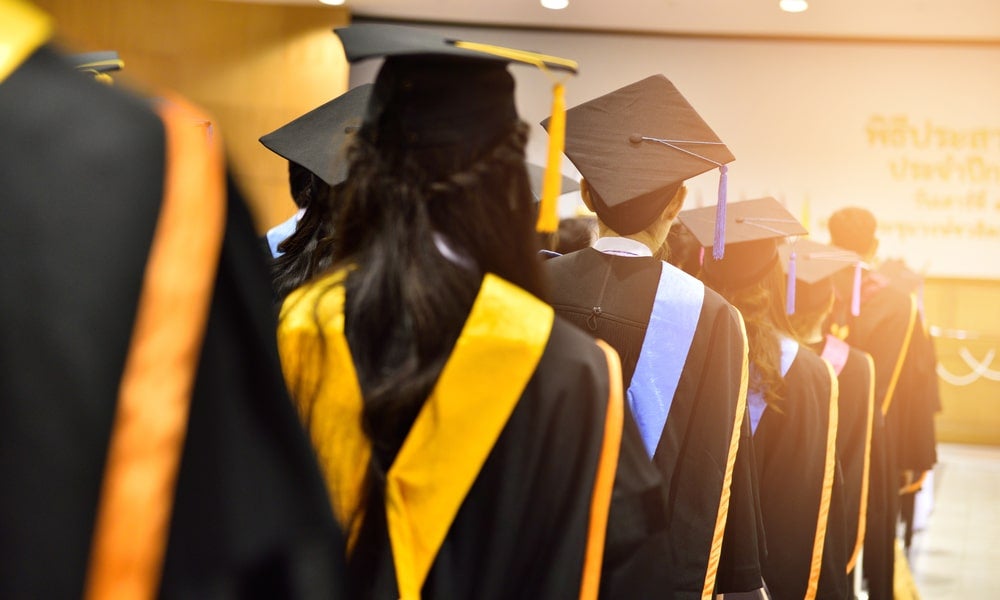How a lift and shift in skills is helping Bain & Company meet the challenges of COVID-19
Bain & Company is looking for work-ready business graduates with a more diverse and cross-functional skillset in order to meet changing client needs through COVID-19
COVID-19 has seen an acceleration of digitalisation in the business world and has become a “make or break” issue for many organisations through 2020, according to global management consultancy Bain & Company. This trend towards digitalisation is only likely to continue as business seeks to leverage the power of data in making more informed decisions about strategy in the future.
“Every business is becoming a technology business. Businesses which haven’t been able to digitalise quickly enough have really struggled in the past nine to 12 months,” said Mr Justin Teo, Senior Associate Consultant at Bain & Company – one of the “big three” management consultancies, which employs some 10,500 people across 59 offices in 37 countries.
Digitalisation continues to be a key theme for Bain & Company, and Mr Teo observed that it is something they think about across all the industries the firm serves, as well as a capability they offer in helping clients to make data-driven decisions. Furthermore, issues around data and digitalisation are set to become even more important for businesses to both “survive and thrive in the next decade”.
Underscoring this trend is the sheer amount of data that is becoming available to organisations, which he said is “increasing exponentially”. Every year, more data is created than in the entirety of all the years prior, said Mr Teo: “so we’re dealing with incredibly large volumes of data. And in order to help our clients stay competitive in the market, we’re having to process that information more quickly.”
Skills Bain & Company looks for
This is driving a subsequent lift and shift in the skills that Bain & Company is looking for in both existing and new employees.
“This involves a lot of advanced analytics techniques, coding literacy, and just general proficiency in being able to focus on what matters, because there’s just so much information out there, and unfortunately there’s not enough time to address every single issue. We look for a very particular type of individual, but I would say that most successful organisations these days are looking for these qualities,” said Mr Teo.
More generally, the firm looks for those who “have a passion for results” and Mr Teo said this is important in how this is applied with clients. This means being able to not only understand data, but the ability to create insightful and meaningful visualisations and charts – and then work with clients to mobilise these insights and contribute to an impact on the bottom line.
In addition to this, he said the firm looks for individuals who have a demonstrated track record of excellence in three areas: academic, leadership and in making an impact in their community. While technical skills are important, it is essential to be able to connect well with others, he explained. “We’re a client services business, as I mentioned before, and what that requires is being able to build really deep meaningful relationships, which is becoming even more challenging – but more important in a digital environment,” he said.
Trends in graduate hiring
This shift in the skills Bain & Company looks for also applies to graduate hiring, with a corresponding focus on aptitudes such as cross-functional thinking.
“This has always been really important for us, and it’s certainly reflected in the way that we hire,” Mr Teo said. “We hire from a diverse range of backgrounds, ranging from your standard business students, law students, art students, all the way to doctors. That’s really important for us to be able to cultivate diversity in thought [and] it also is reflected in the work that we do.”
While strategic advice remains at the heart of the firm’s client value proposition, Mr Teo said it offers a much wider range of services to help clients navigate a very different and ever-changing business landscape. “So the cross-functionality that we get both from diversity of background, but also the diversity of the work that we do, is extremely important,” he said.
While the impact of COVID-19 has affected many organisations’ hiring plans, Mr Teo said it hasn’t negatively impacted the number of graduates Bain & Company is looking for. “Our business is actually busier than ever,” he said. “We’re still looking for high-calibre talent to come in and join us and help solve some of the market’s toughest problems. From what I hear from my peers, though, in other professional services firms, there has been a shift in the level of demand required for graduates.”

Mr Teo observed there has been a shift across the market more broadly, from start-ups through to other types of organisations. “What I have seen is that some of these other non-traditional graduate employers are actually looking to hire a lot more.”
This requires business graduates to be a “bit more creative” about the type of options they’re considering. Mr Teo gave the example of Hatch, an online platform which promotes a different way of thinking about early career employment including the option of starting up companies, as well as earlywork.co, an online resource (founded by UNSW Bachelor of Commerce alumni Daniel Brockwell) which consolidates start-up jobs which might be of interest to students.
Meeting the modern needs of business
Mr Teo, who has a Bachelor of Commerce/Law from UNSW Sydney, believes it is important to help equip future graduates with work-ready skills that will add genuine value to their future employers. He served as an industry representative on the Academic Program Review panel for UNSW Business School which recently redesigned its Bachelor of Commerce to equip graduates with the skills required in today’s business world.
“The new curriculum is much more practical and this experience is really managed for you. When I was a business student the courses and the lecturers were fantastic. I studied accounting and finance,” said Mr Teo, reflecting on his experience at UNSW and how this helped prepare him for his future career.

“The Bachelor of Commerce integrates a lot of core experiences and brings to life what really should be a very practical program. You know, we are grounded by business theory and frameworks, and the new, practical, experiential, more collaborative elements of the redesigned curriculum are really reflective of how we do things in the business world.”
Equipping graduates with work-ready skills
The Business School engaged a wide range of employers such as Bain & Company as well as its Business Advisory Council (which includes Board Directors and C-Suite executives from some of Australia’s top listed companies, regulators and public sector organisations) to better understand their business requirements.
This exercise was immensely valuable in understanding the challenges that graduate employers are facing and the skills required to meet their needs, said Mark Uncles, Deputy Dean (Education) and Professor of Marketing at UNSW Business School.
Employers and UNSW’s Business Advisory Council also highlighted the importance of cross-functional and cross-disciplinary thinking that Mr Teo mentions above, and Professor Uncles explained there are interrelationships between all functions if you think about what goes on inside an organisation.

“Accounting and finance principles naturally fit together, while international business and marketing often go together, so too do governance, regulation and ethics. In the broader business ecosystem, at a macro level, opportunities and problems don’t present themselves in neat packages, so it’s important to apply a business mindset where connections and interdependencies are understood. We carry this through to double degree programs where the Bachelor of Commerce is offered in combination with other degrees,” Professor Uncles said.
A large number of students, for example, are undertaking a Commerce degree with Engineering. Professor Uncles explained how this approach might add cross-functional value within an organisation. “Say there was a problem around water resources in a region of Australia. You can think about that from an engineering perspective but also think about the business opportunities presented by water management. That’s where value is created, or if you do it badly, where value is lost – and that’s the kind of connected thinking we are developing in our students,” he said.
The first undergraduate intake for the redesigned Bachelor of Commerce will be Term 1, 2021. Interested students can find out more on the UNSW Business School website.
